Outrageous Movie Fan Theory - Did The Bride Really Kill Bill?
What if it wasn't real?
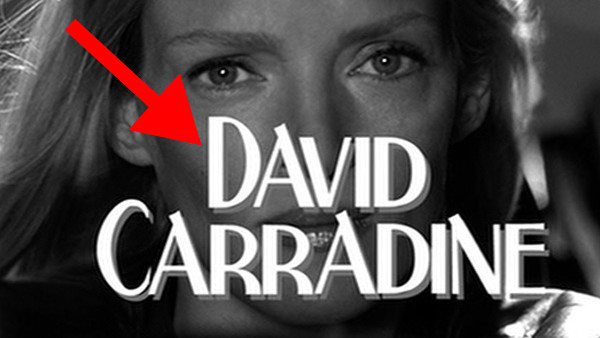
Despite the brilliance of Pulp Fiction, the swagger of Jackie Brown or the genius of Inglourious Basterds, Kill Bill remains Quentin Tarantino's magnum opus. It is a towering achievement of film-making, with zero flab and less of the infatuation with style and artistic influences that would later threaten to derail his work, and it's easily his most compelling story work.
On the surface, the film seems to be an archetypal story of vengeance, mashing up Western elements with classic kung fu pillars and ending on a triumphant note as our hero overcomes all manner of obstacles to finally get her revenge and to kill Bill.
But is that too simple a reading? What if The Bride never actually kills Bill? What if that climactic meeting isn't what it initially seems? What if Bill survives? It might sound strange, considering his heart explodes and we apparently see him die, but there's actually a pretty compelling case to be made, thanks to one brilliant fan theory.
Let's look at the facts, shall we?
The Play-Acting
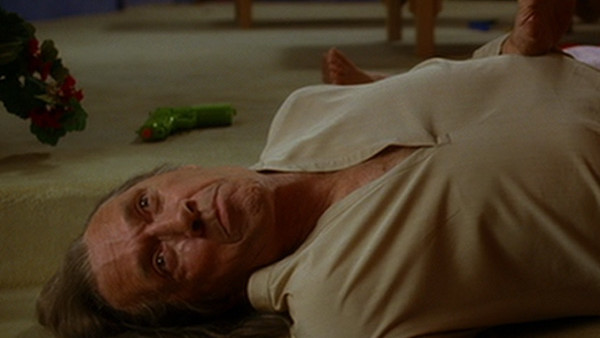
When The Bride eventually finds out where Bill is, she heads to confront him, discovering that her daughter is actually alive in a stunning revelation. And in a marked moment of foreshadowing, we see the young girl, BB, playing pretend with both The Bride and Bill, as they pretend to shoot each other and fall to their "deaths".
That's essentially a major clue to what eventually happens at the end: the whole sequence is an elaborate staged play and more than Bill enacting his own plan to free The Bride and BB. Why else wouldn't he take the opportunity to kill her when he manages to shoot her with truth serum? And why else would he be able to take more than the supposedly definitive five steps before his death?
We Don't See Her Learn The Killer Technique?
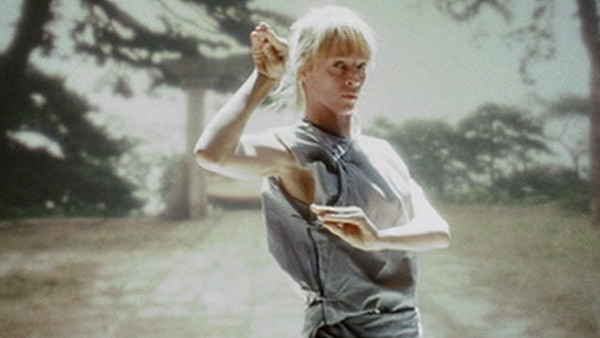
Throughout Kill Bill, we learn about The Bride's training at the hands of Pai Mei and significantly, we are shown her learning the specific techniques that she then uses to pluck out Elle's eye and escape Budd's coffin. What we aren't shown - and what The Bride keeps secret - is her apparently learning the Five Point Palm Exploding Heart Technique that she uses to kill Bill.
The reason for that is that she never learns it. Pai Mei notoriously refused to pass on that technique, and there is nothing to suggest why he would suddenly change that stance simply to pass it on to The Bride. She isn't that special.
That would explain Bill's apparent confusion at her knowing the technique at the end, but if you consider this all to be more play-acting, Kiddo's demeanour makes more sense, as does her almost sarcastic "of course he did" response when Bill asks whether Mei taught her. It's not at all convincing even as she says it.
She Doesn't Kill As Much as You'd Think
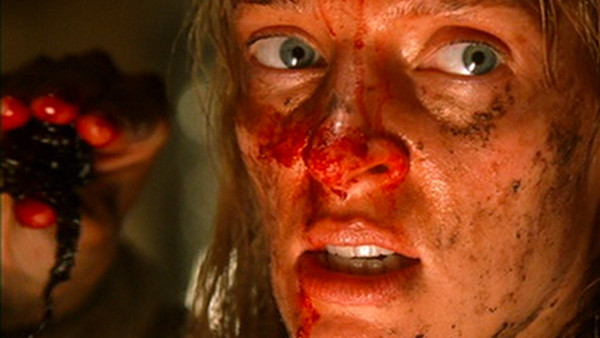
For all of the suggestions that The Bride is a killing machine, she doesn't actually kill all that many of her sworn enemies, even when they're listed on her kill list. Sure, she kills Oren Ishi (and the Crazy 88), but her maternal instincts kick in twice early on her path to vengeance and seemingly change her blood lust fundamentally.
When she encounters Vernita's daughter, she seems to show contrition for killing her mother, and recognises there may be future repurcussions. She also refuses to kill a child in the Tea House sequence, instead sending him home to his mother. She isn't a monster, and though she wades into murderous waters initially, she quickly remembers that she left her life of killing behind for a very good reason.
From there, she kills no-one (other than Bill), even those who definitely deserve it (Elle, chiefly), and her reason for killing Bill - the murder of her child - proves to be misplaced. Why would she suddenly go back to killing when she has no real reason to?
That Unmade Sequel
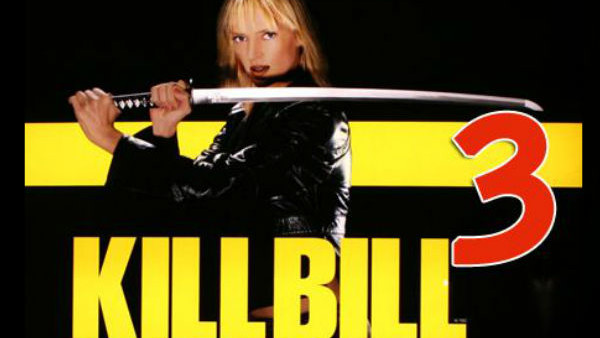
Though Quentin Tarantino has said for years that he has a fixed point for his retirement (which is now two films away), he's also very publicly flirted with the idea of making a third Kill Bill movie. The shape of that has always been assumed as following Vernita Green's daughter's attempt at vengeance on The Bride, picking up the story when she's grown up and has trained herself, to effectively flip the narrative of the original movie.
Indeed, Tarantino said as much in 2004 to Entertainment Weekly:
Oh yeah, initially I was thinking this would be my "Dollars Trilogy." I was going to do a new one every ten years. But I need at least fifteen years before I do this again. I've already got the whole mythology: Sofie Fatale will get all of Bill's money. She'll raise Nikki, who'll take on The Bride. Nikki deserves her revenge every bit as much as The Bride deserved hers.
But there's a big elephant in the room here: why would it be called Kill Bill 3? And to consider it a true trilogy ender, you have to consider it as much Bill's story as The Bride's. It wouldn't work without him, even if David Carradine's death means he'd have to be recast.
The Credits
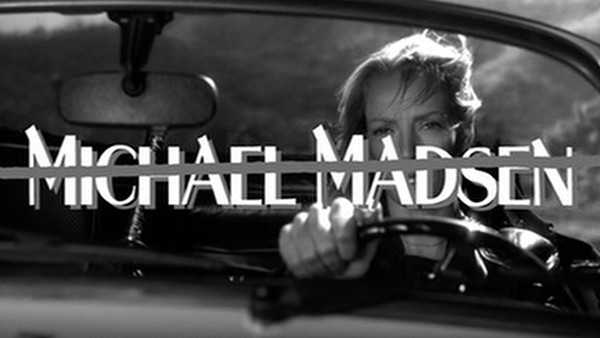
There's a fairly big hint in the stylised credits sequence at the end of the movie. As the credits of the Deadly Viper Assassination Squad are shown over the black and white image of The Bride driving away, the dead members have their names scratched out dramatically.
Michael Madsen, Lucy Liu and Vivica A Fox are all crossed out, while Daryl Hannah gets a question mark, because her fate is left uncertain. Sure, she has no eyes and she was left with a black mamba in Budd's trailer, but the film doesn't even know if she ended up dead...
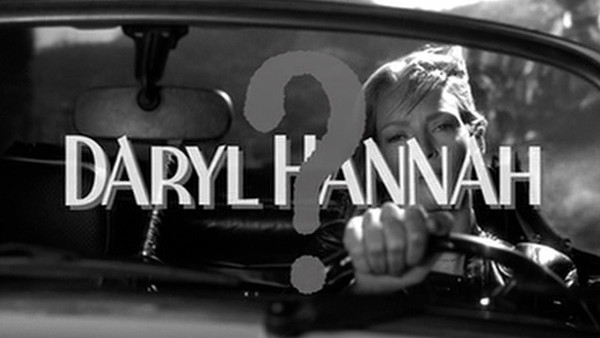
But David Carradine's name has no strike and no uncertainty. Because he's not dead.
Why?
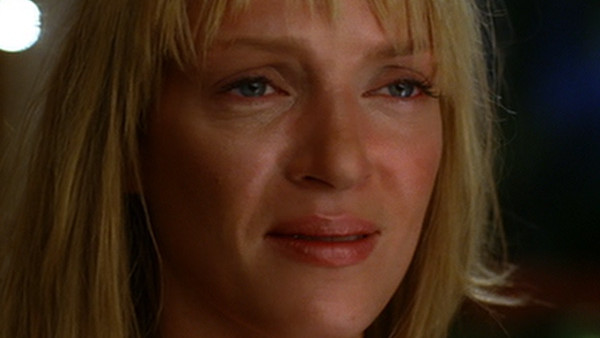
So why would The Bride not kill Bill, when that seems to be her reason d'etre? Well, as already qualified, her reason to kill him has already been revealed to be misplaced. BB is still alive, and while he tried to kill her, they both love each other. It's an all-consuming love that leads to things like attempted murder, despite Bill saying Kiddo is his "favourite person".
They don't want to kill each other, but they know they can't live with each other either. So they play-act closure and move on with their lives separately.
And more than that, playing this alongside the final sequence, which sees The Bride curled up on the floor of her bathroom offering her thanks explains a lot. The play-acting and Bill's fake death is his gift to her and his daughter: it's effectively him surrendering the contract on Kiddo's life and freeing her from the cycle of vengeance that would consume her if Bill was "left alive". That's why she thanks him, not simply because he raised their daughter.
He allowed them to be free.
What do you think? Share your responses below in the comments thread.